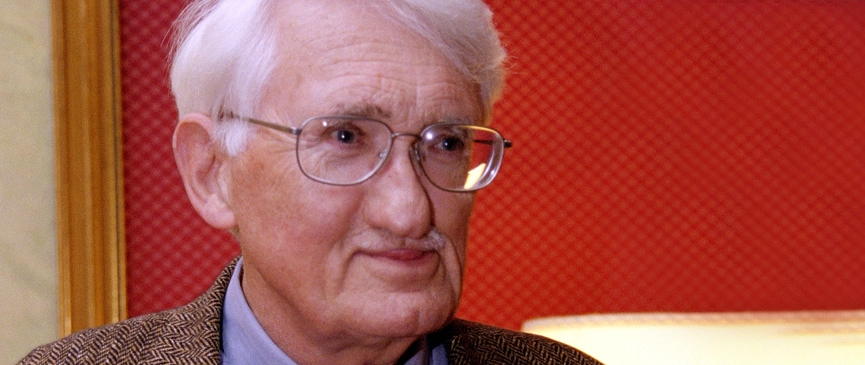Main content
Jürgen Habermas Prince of Asturias Award for Social Sciences 2003

Jürgen Habermas (Dusseldorf, Germany, 1929) is the figurehead of the second generation of Frankfurt School philosophers and the leading light of contemporary European philosophy. His intellectual honesty, his quest for solutions to the problems of modern man and his interpretation of history and social reality make him a point of reference throughout the world.
Habermas studied Philosophy, Psychology, Literature and Economics at the Universities of Gottingen, Zurich and then Bonn, where he earned his doctorate. He worked for some time as a freelance journalist before, under the aegis of Theodor W. Adorno, joining the Frankfurt am Main Institute for Social Research, where he became full professor of the Department of Philosophy and Sociology in 1964.
Considered to be the person who took up the mantle of the philosophic tradition of Kant, Hegel and Marx, Habermas has developed a school of thought founded upon a novel theory of society and on the pre-eminent explanatory power of the social sciences. With the publication of "Knowledge and Human Interests" in 1968 his reputation spread beyond the confines of Germany, and in 1981 he published his fundamental work, "The Theory of Communicative Action", which was twenty years in the making. The text, which has become a benchmark of contemporary practical philosophy, counterpoints traditional Functionalist ideas with 'social intersubjectivity', and leads on to his theory of discursive ethics.
Critics and admirers alike testify to his unique wealth of knowledge about history and his extraordinary erudition on the subject of his own times. In the words of Anthony Giddens, 2002 Prince of Asturias Award winner for Social Sciences, 'it is impossible not to be impressed by the encyclopaedic scope of a discussion with Habermas'. His works have been translated into over twenty languages and figure amongst the classics of contemporary thought.
He has been awarded Stuttgart's 'Hegel Prize', Darmstadt's 'Sigmund Freud Prize', the 'Adorno', the Geschwister Scholl, the Sonning and the Wilhelm Leuschner Medal. He is doctor honoris causa at the Universities of Jerusalem, Buenos Aires, Hamburg, Northwestern University Evanston, Utrecht, Tel Aviv, Athens and the New School for Social Research in New York, and a member of the German Academy of Language and Poetry.
End of main content
